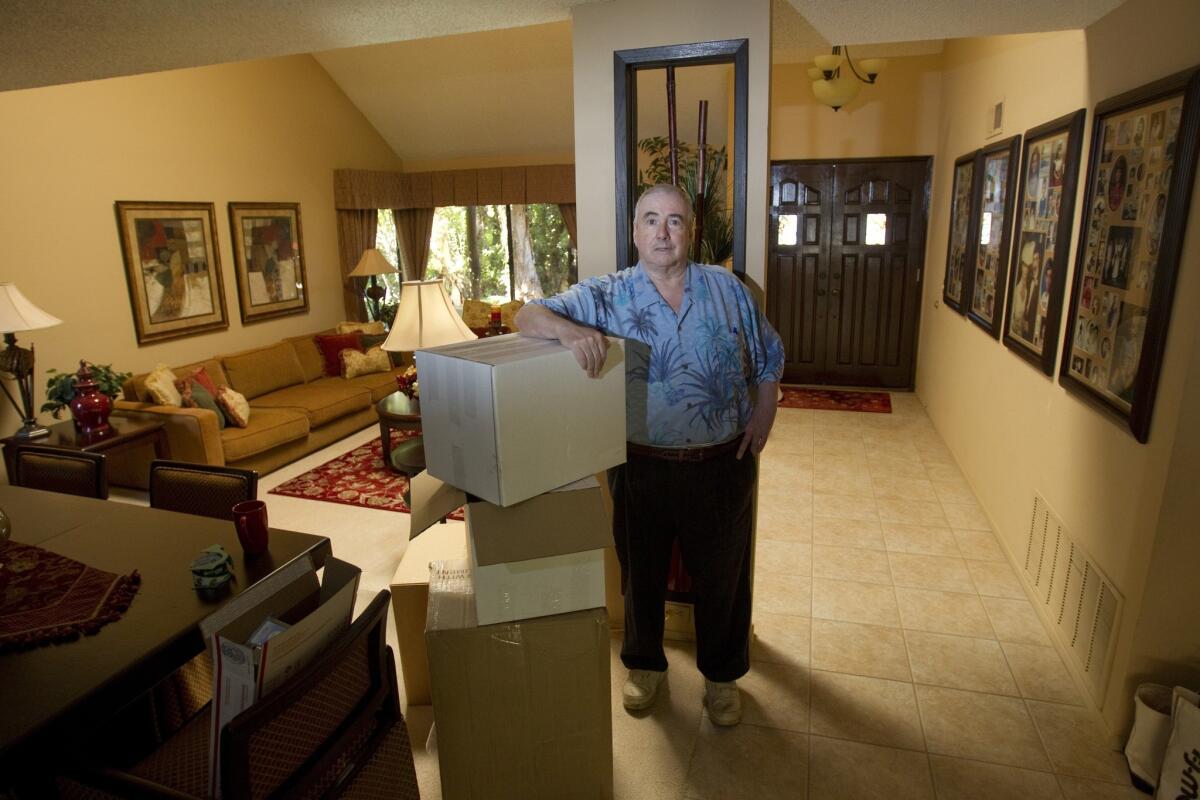How seniors can lessen the mortgage burden

Depending on circumstances, those retiring with a mortgage can take a variety of steps to lessen the financial burden.
Jonathan Dash, owner of wealth management firm Dash Investments in Beverly Hills, often recommends taking money out of savings accounts, whose low interest rates are not going to yield much of a return, and using the cash to pay down the mortgage more quickly.
If payments are unmanageable, seniors can sell their home and move to a smaller place, said James Wells, a housing counselor with ClearPoint Credit Counseling Solutions. By downsizing, seniors can not only reduce their mortgage payments but also other expenses that come with a larger home.
The Consumer Financial Protection Bureau also recommends setting a goal to pay off the mortgage by a certain time and including that in one’s retirement plan. And for those nearing retirement age who are buying a new home or refinancing, the agency says to consider a term of 10 to 15 years rather than 30.
“You’ll have higher monthly payments now, while you’re still working, and be less likely to still have a mortgage in retirement,” the agency said in a consumer advisory.
Indeed, the most important step is to look and plan ahead, experts say. Lori Trawinski, director of banking and finance with AARP’s Public Policy Institute, said those entering retirement should prepare a detailed analysis of their expenses and expected retirement income.
“Everything depends on someone’s personal financial situation,” she said. “Having a mortgage or tapping into home equity is not, in and of itself, a bad thing.”
Those who do get into trouble can receive free counseling though AARP’s housing solutions center, set up in the wake of the foreclosure crisis.
One person they may speak to is Wells. Based in Atlanta, Wells handles calls from seniors across the country, many of whom were referred by AARP. Since he started as a housing counselor six years ago, the number of older clients with mortgage debt has more than doubled, he said.
Most of the time, to deal with that debt, some simple belt-tightening is all that’s needed, Wells said.
“It’s OK you can do this,” he says he tells many clients. “It’s just rearranging the budget. It’s OK to reduce the amount in dry cleaning expense. It’s OK to reduce the amount on cable.
“At the end of the counseling session they do come to the realization they can’t keep going the way they are going.”
For some, though, a mortgage may not be a burden. For those seniors — ones with significant financial assets or income streams — it’s often unwise to rapidly pay off the debt simply to own the home outright, experts said. Instead, some financial planners say, the money can be invested where it can earn more than the interest payments on the mortgage.
“Being debt free is great, but you have also locked up all that capital in one asset,” said William Ryan, a financial consultant in Orange County.
And a mortgage, if affordable, can free up money for investments such as home renovations that help seniors live in their homes despite worsening health, Trawinski said.







